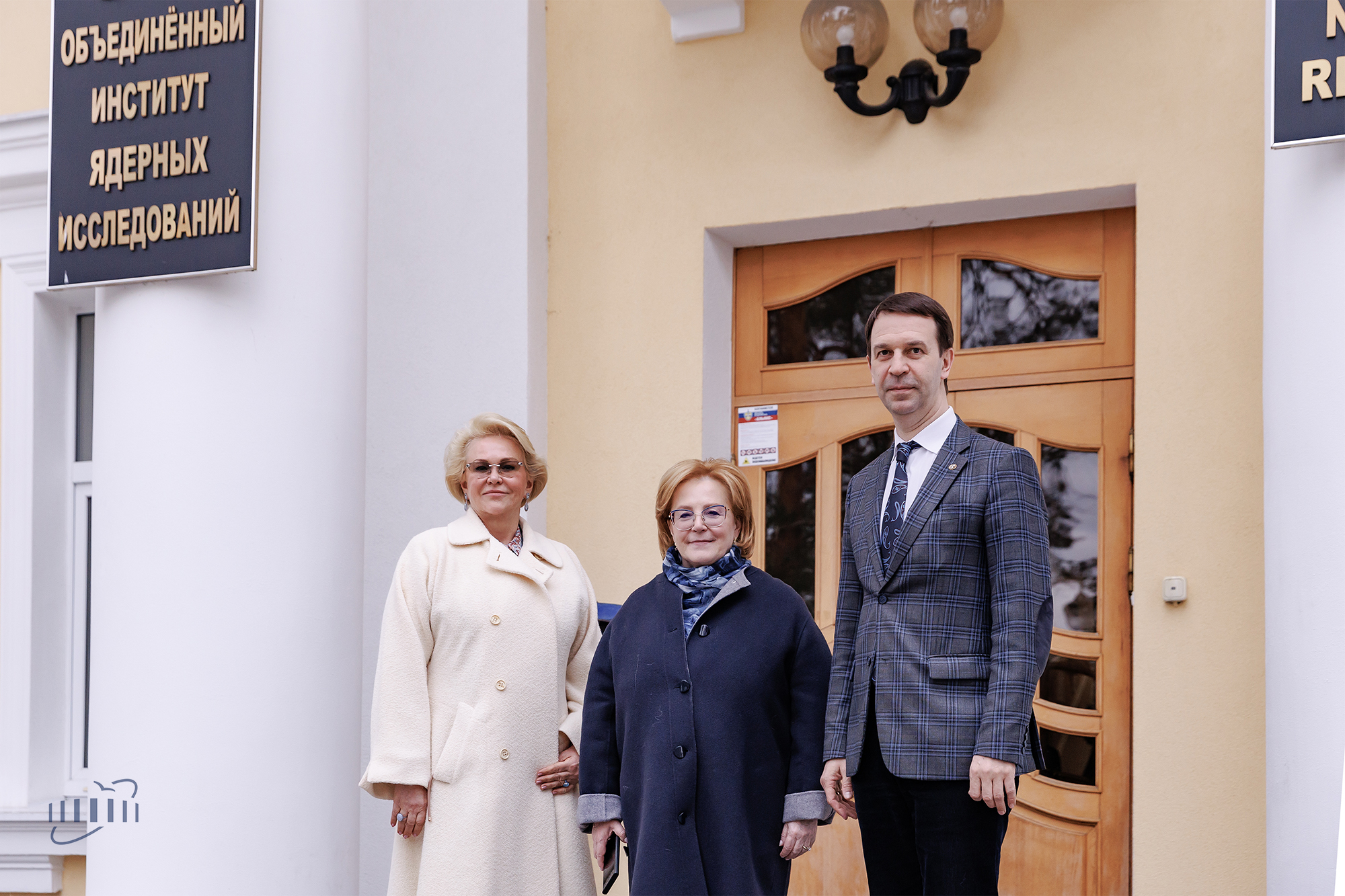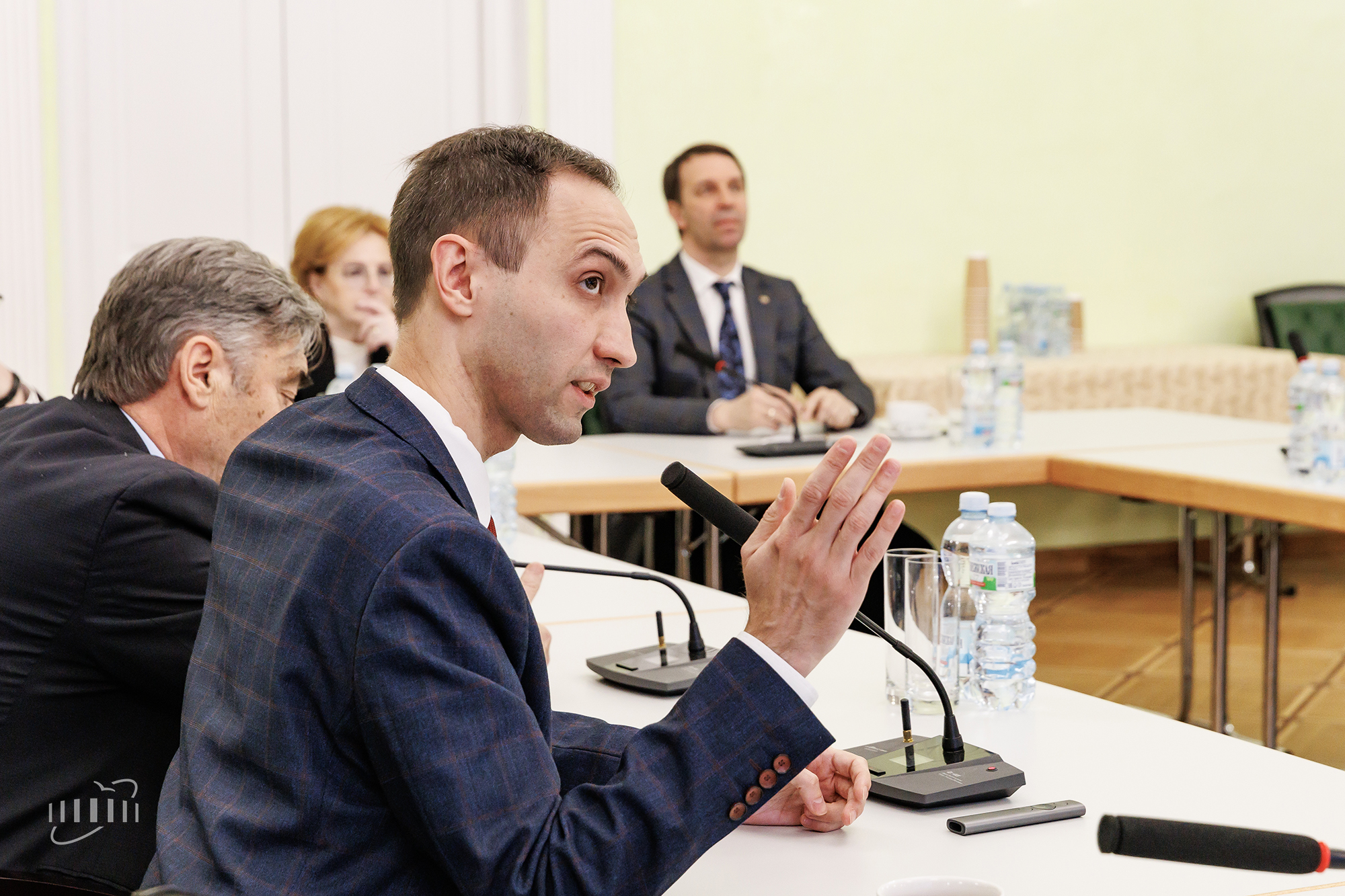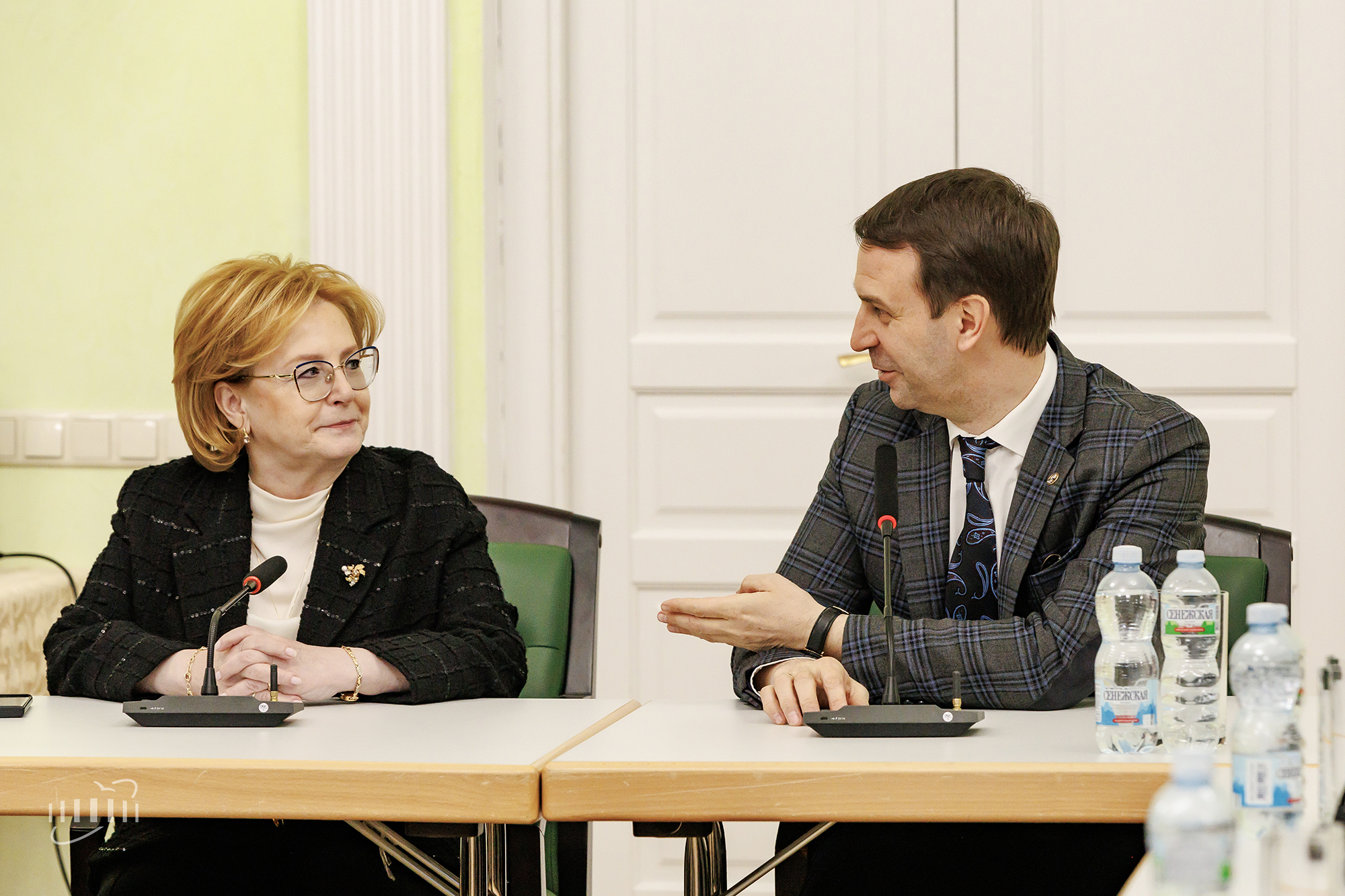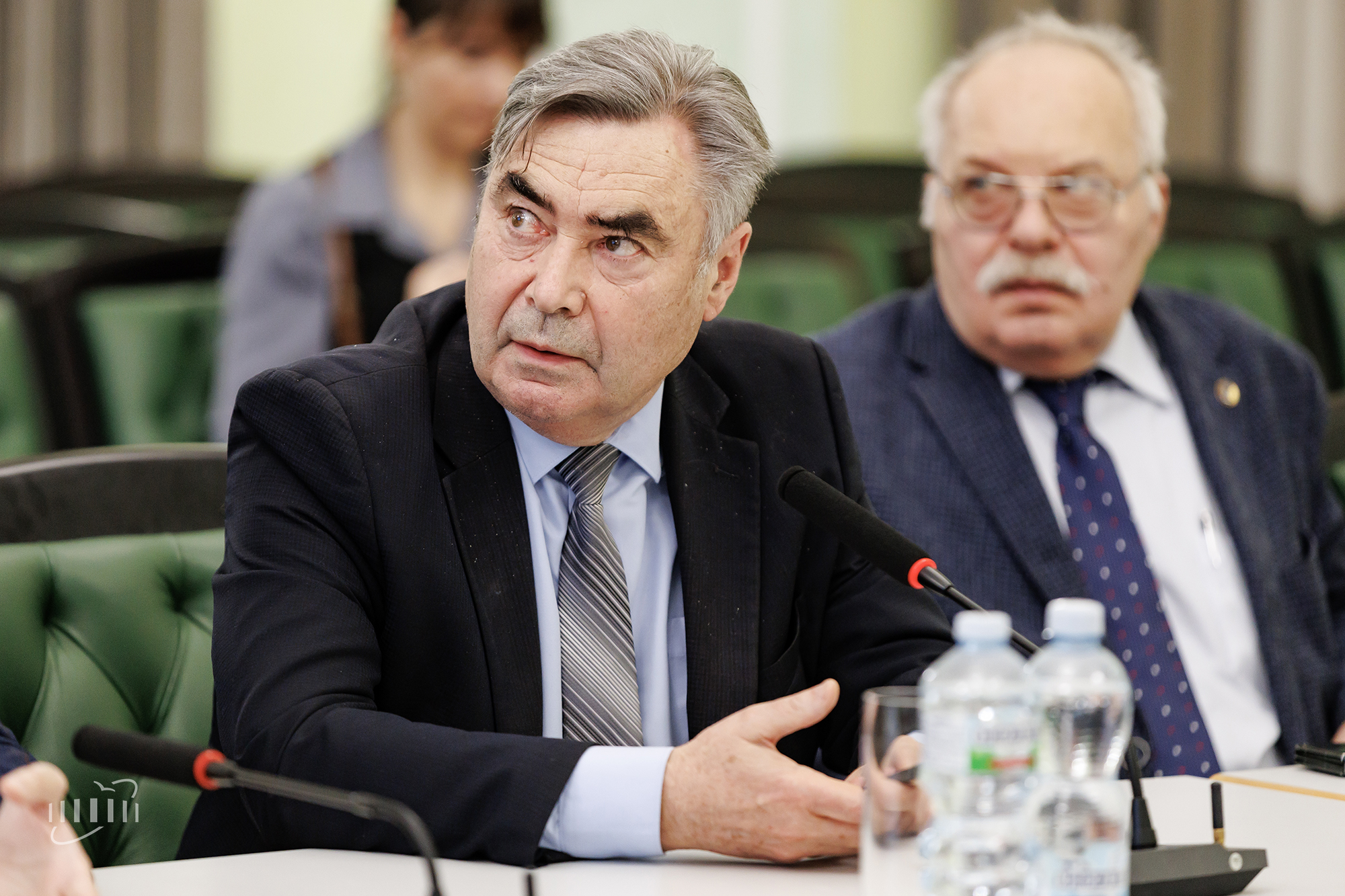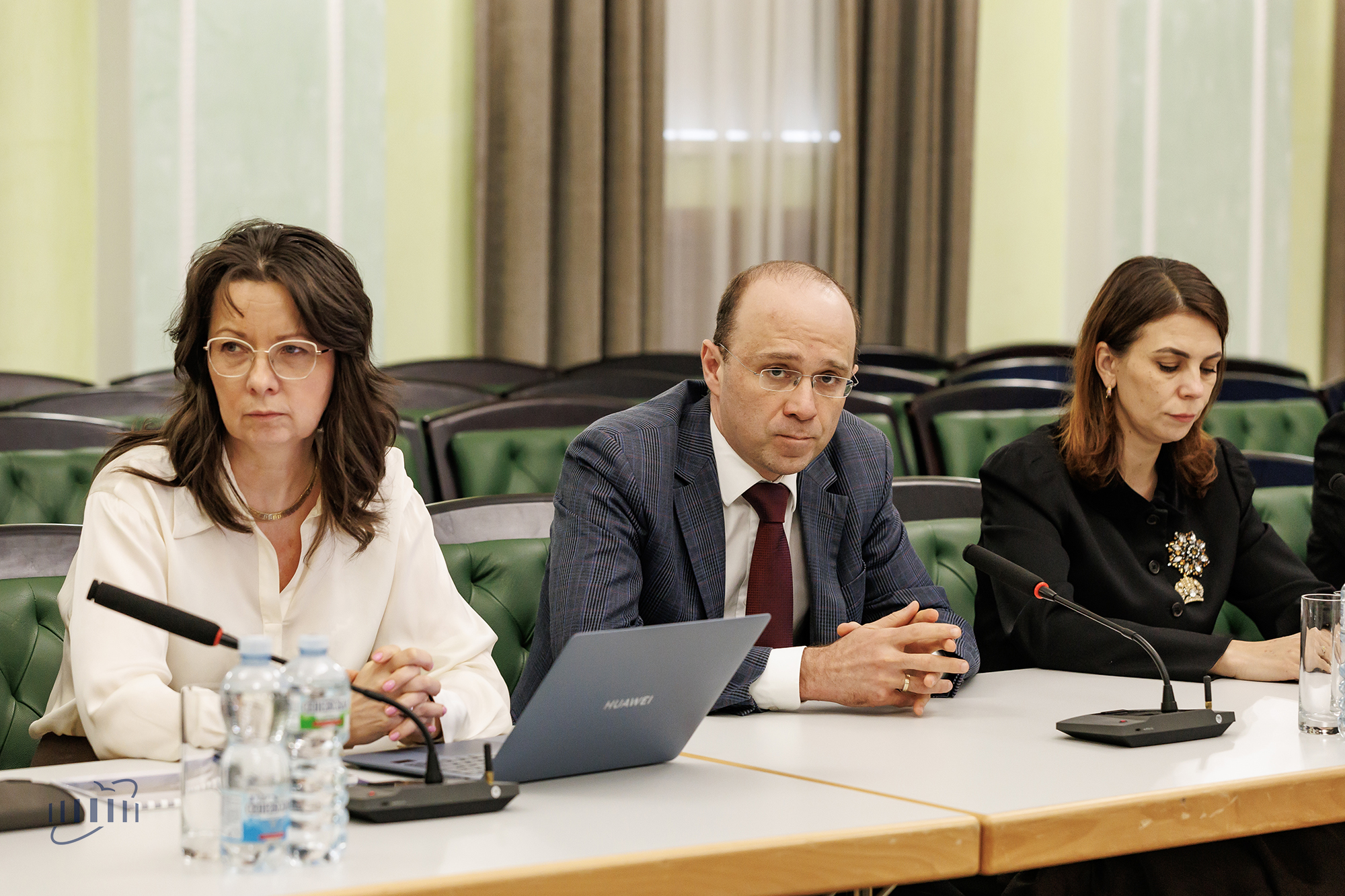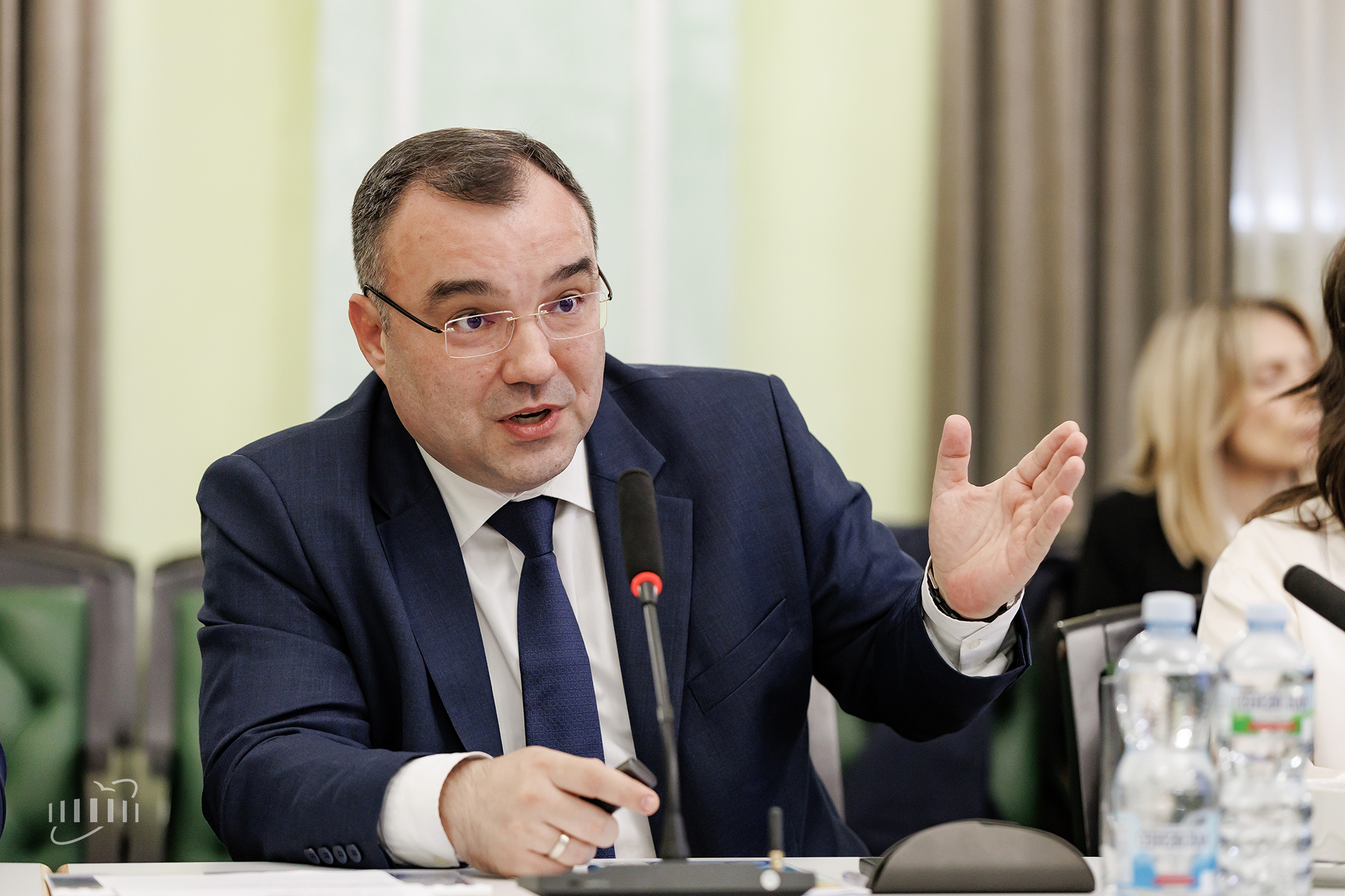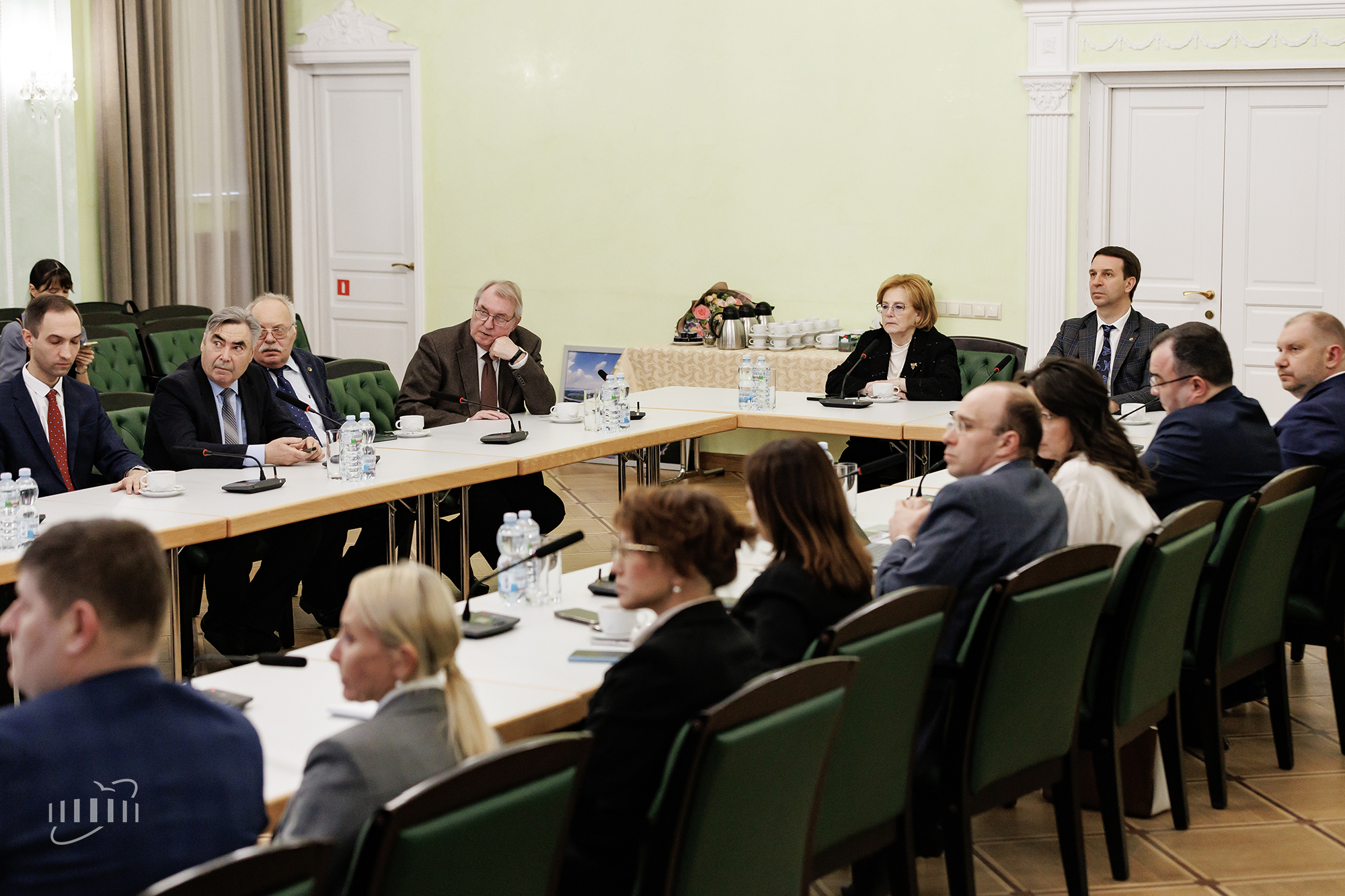Cooperation with FMBA discussed at JINR
News, 17 April 2025
On 11 April 2025, the Joint Institute for Nuclear Research held a working meeting on collaborative studies with the Federal Medical and Biological Agency of the Russian Federation (FMBA). The key topic of the discussions was the development of new projects.
Opening the working meeting, JINR Director, Academician of the Russian Academy of Sciences Grigory Trubnikov and Head of the FMBA of Russia Veronika Skvortsova emphasised the relevance and importance of advancing nuclear medicine and radiation biology in the modern world. Veronika Skvortsova highlighted a number of scientific areas that the organizations under the agency’s jurisdiction are focusing on:
- development of proton and radionuclide therapy of oncological diseases,
- creation of new radiopharmaceuticals,
- genome-wide studies to determine the mechanisms of the effects of different types of ionising radiation on biological objects,
- radiation safety, development and creation of radioprotectors and radiomitigators.
The FMBA Head noted the agency’s readiness to participate in the Institute’s various projects: “Understanding JINR’s enormous scientific and technological potential and the uniqueness of research that meets high international standards, we would love to harmoniously combine the capabilities of the FMBA with the capabilities of the Joint Institute”.
Director of the Laboratory of Radiation Biology Aleksander Bugay delivered a presentation on the development of JINR–FMBA projects. He defined the establishment of a proton therapy research and clinical centre in Dubna based on the MSC-230 Cyclotron as a priority cooperation area. “The support of the FMBA of Russia will provide the centre with modern technological equipment and contribute to the implementation of a new radiobiological research programme,” the LRB JINR Director said.
In addition, Aleksander Bugay discussed the scientific activities of the Joint Institute’s laboratories. LRB is actively studying the use of radiosensitisers together with specialists from the Burnazyan Federal Medical Biophysical Centre of Russia. The laboratory’s researchers patented approaches to enhance the biological effectiveness of therapeutic ion beams. Studies of the negative effects of irradiation of animal brain tissues are continuing, and test systems based on genetic engineering for biological dosimetry of genotoxic factors are being developed. In addition, he noted the extensive experience of the specialists of the Laboratory of Nuclear Problems in devising methods and technologies to ensure high beam intensity and dose rate and the expertise of the employees of the Centre of Applied Physics of the Laboratory of Nuclear Reactions in creating new functional materials for industrial medicine.
JINR Chief Engineer Boris Gikal spoke on the progress of the MSC-230 Superconducting Proton Cyclotron. The facility is designed for proton radiation therapy and biomedical studies, including the creation of flash therapy methods. The launch of the cyclotron is scheduled for 2026. All key MSC-230 systems are currently in production. According to Boris Gikal, in the future, the accelerator will be used to mass-produce the latest technological equipment for proton therapy of oncological diseases and introduce it into clinical practice.
The programme of the meeting finished with a talk by General Director of the Federal Scientific Clinical Centre for Medical Radiology and Oncology of FMBA of Russia Yuri Udalov, in which he presented the FMBA capabilities in proton therapy. At the end of the meeting, Grigory Trubnikov and Veronika Skvortsova agreed that it is necessary to continue active discussions of future joint projects and new initiatives. The next step to promote the cooperation will be the establishment of a focus group consisting of specialists from both organizations who will detail the technical design of the new high-tech proton therapy centre in Dubna.
